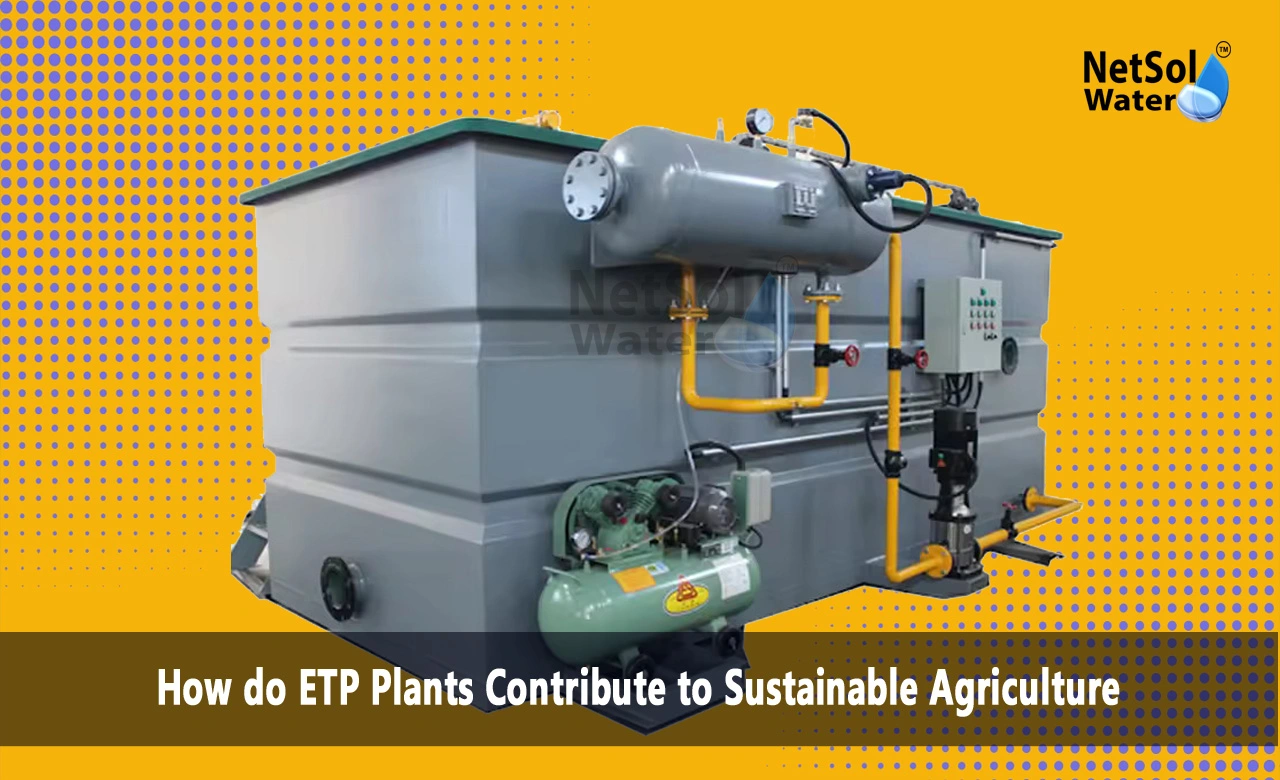How do ETP Plants Contribute to Sustainable Agriculture?
The global population is growing, and meeting the increasing demand for food production sustainably is a major challenge. Currently, agriculture uses 70% of the world's freshwater and relies heavily on mined resources for fertilizers. To address these issues, there is a shift towards more sustainable agricultural practices that minimise natural resource depletion and environmental impact. Surprisingly, effluent treatment plants, such as municipal sewage and industrial wastewater facilities, are playing a role in this shift. They are becoming resource recovery hubs, reclaiming nutrients, water, and organic matter that can be reused to enhance agricultural sustainability.
Let's explore how effluent treatment contributes to this agricultural revolution.
Recovering Nutrients from Wastewater
Both municipal sewage and many industrial wastewater streams contain concentrated nutrients like nitrogen, phosphorus and potassium - the essential elements for plant growth and soil fertility. Historically, effluent treatment plants simply removed and disposed of these nutrients before discharging treated water. Now, there is an increasing focus on separating and reclaiming these nutrients in solid form at treatment plants through processes like:
Biological Nutrient Removal: Promoting conditions for nitrification and denitrification and enhanced biological phosphorus removal to concentrate nutrients in biosolids.
Chemical Nutrient Recovery: Dosing effluents with metal salts/precipitants to separate phosphorus and nitrogen compounds into recoverable sludges.
Ion Exchange: Using selective ion exchange resins and adsorbents to extract and concentrate nutrients in brine solutions for recovery.
The resulting nutrient-rich biosolids, sludges, and sediments generated by these processes can undergo further treatment (like thickening, dewatering, stabilisation, etc.) to become nutrient fertilisers and soil amendments. Compared to the energy-intensive production of synthetic fertilisers, recycling nutrients from effluent treatment is far more sustainable.
In regions around the world, effluent-derived nutrient fertiliser products are being tested and used successfully by farmers for agricultural applications like:
Manure and Sludge-Based Fertilizers: Class A/EQ biosolids and stabilised sewage sludges are applied as nutrient sources for farms, ranches, and landscaping.
Struvite Fertilizer: Recovered phosphorus in the form of magnesium ammonium phosphate marketed as a slow-release fertiliser.
Ammonium Sulfate Solutions: Extracted ammonia/ammonium from wastewater used as nitrogen fertiliser.
Effluent Treatment as a Hub for Water Reuse
Another key contribution of effluent treatment plants to sustainable agriculture is their ability to reclaim water for agricultural irrigation and other farming activities. Technologies like membrane filtration, advanced oxidation, and disinfection enable treated effluent to be purified and safely reused rather than discharged.Making productive use of this reclaimed process water from treatment plants minimises agriculture's draw from limited freshwater sources stressed by droughts and climate change. As regulations evolve to enable broader direct potable reuse of effluent, it may also support groundwater recharge and aquifer restoration initiatives.
Some specific examples of agricultural and farming applications leveraging reclaimed effluent include:
• Drip irrigation systems for crops using disinfected tertiary-treated effluent
• Water recycling from livestock operations, meat processing, and dairy facilities
• Irrigation for non-food crops like cotton, turf, forestry seedlings, etc.
• Water supply for contained aquaculture/aquaponics farming
Additionally, constructed wetlands and land application of treated effluent enable the water to replenish groundwater supplies sustainably, indirectly supporting agricultural needs.
Conclusion:
Effluent treatment plants will play an increasingly essential role in the future of sustainable agriculture by unlocking value from waste streams. It's an important collaborative opportunity for the water/wastewater sector to directly support more environmentally sound farming practices that can meet global food needs sustainably.
To explore customised Commercial RO plants, Industrial RO plants, ETP or STP solutions for your needs in your areas and nearby regions, contact Netsol Water at:
Phone: +91-965-060-8473, Email: enquiry@netsolwater.com



